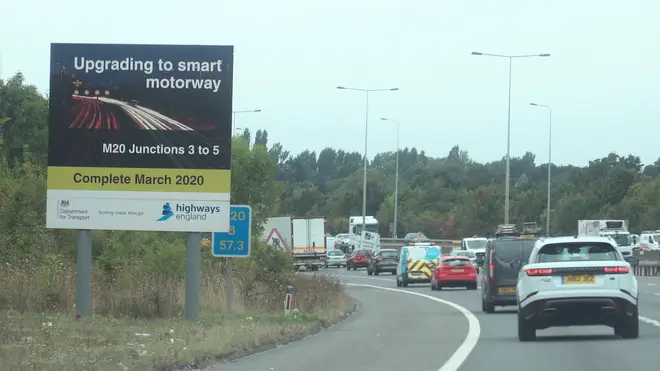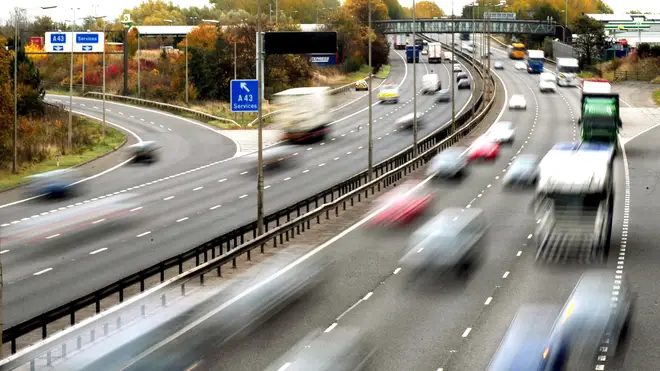
Nick Abbot 12am - 1am
26 January 2020, 19:42

Thirty-eight people have been killed on smart motorways in the past five years with near-misses increasing 20-fold, figures suggest.
Near-misses have drastically increased on one of Britain's stretches of smart motorways since hard shoulders were taken away.
An investigation uncovered a total of 1,485 near-misses on London's busy M25 ring road since the scheme's introduction. In the five years before there were only 72.
Smart motorways were brought in to relieve traffic on busy parts of the UK's road network. They transform the hard shoulder into another driving lane, meaning drivers who break down are left at the mercy of the traffic.
Former government minister Sir Mike Penning, who gave the roll-out the green light, told BBC's Panorama he was misled about how risky the system could prove to be.
"They are endangering people's lives," he said.
"There are people that are being killed and seriously injured on these roads, and it should never have happened."

It is believed the government is now looking to overhaul the network over the next three years by fitting radar - technology that can spot stranded vehicles when drivers break down - across smart motorways.
The car detection system is currently only fitted on two sections of the M25.
Currently, motorists across the country have to wait for an average of 17 minutes before being spotted, and a further 17 minutes before being rescued.
Plans to introduce dynamic hard shoulders - which can act as a hard shoulder or as a traffic lane - will be scrapped.
The Department for Transport said a review into smart motorways, announced in October, was still ongoing.
Transport Secretary, Grant Shapps told BBC Panorama's Britain's Killer Motorway? programme: "We absolutely have to have these as safe or safer than regular motorways or we shouldn't have them at all."
Only nine per cent of more than 17,000 people questioned feel relaxed or safe driving on a smart motorway, according to research fro the AA.
In addition, just 12 per cent think that smart motorways are as safe as traditional motorways.